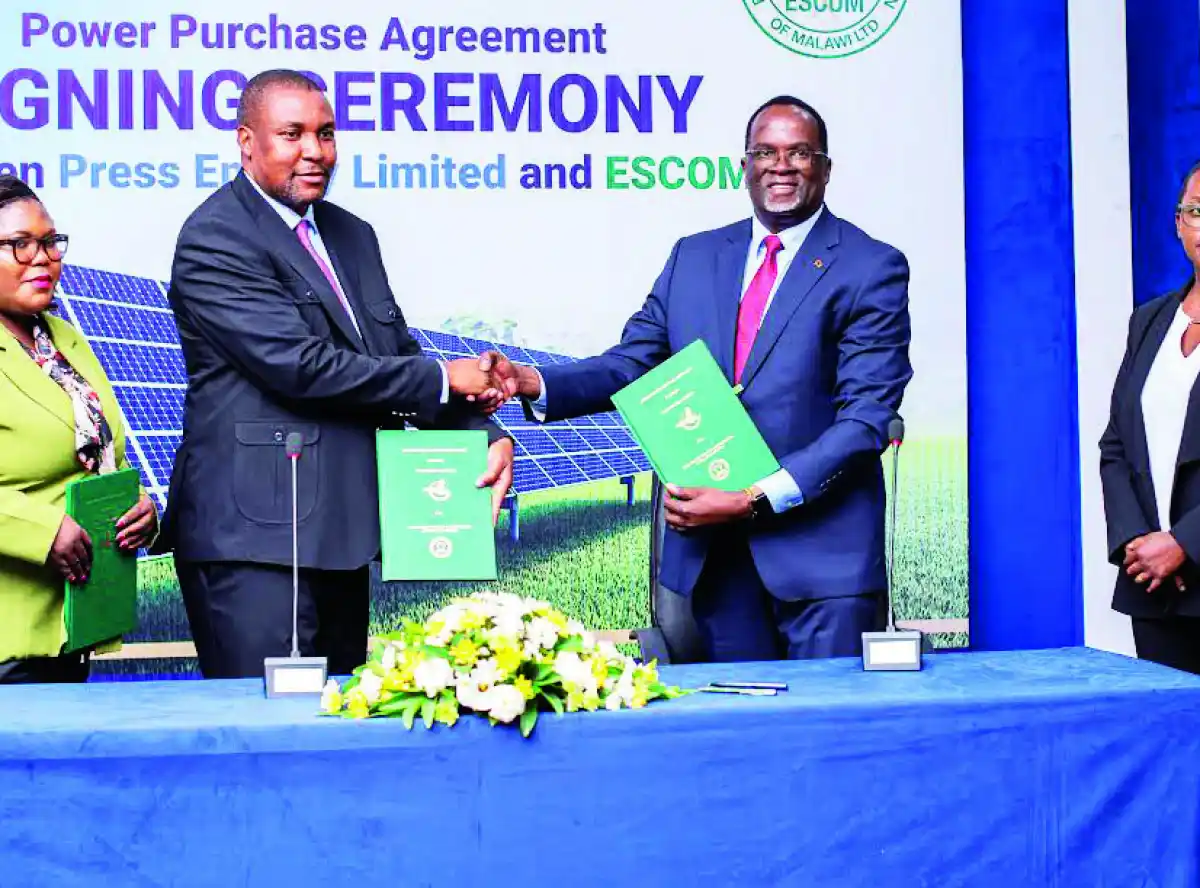
By Benadetta Chiwanda Mia:
Expectations are high that Malawi’s energy generation capacity will increase by 50 megawatts in 2026, as Press Energy Limited (PEL) has committed to start selling this power to the Electricity Supply Corporation of Malawi (ESCOM) in that year.
The development follows PEL’s ongoing investments in a $55.1 million (about K95.2 billion) 50-megawatt solar energy project located in Nkhoma, Lilongwe.
The project milestones were cemented with the signing of a Power Purchase Agreement (PPA) between PEL and Escom in Blantyre on Tuesday.
PEL is a subsidiary of Press Corporation Limited (PCL). PCL Chief Executive Officer Ronald Mangani highlighted the project’s potential to increase reliance on renewable energy and reduce dependence on hydropower, which is susceptible to weather disruptions.
“This subsidiary will lead renewable energy projects, starting with solar initiatives, to lower Malawi’s carbon footprint and advance sustainable energy solutions.
“This initiative will also drive job creation, skills training and community empowerment, contributing to Malawi’s broader socio-economic development,” Mangani said.
Escom Chief Executive Officer Kamkwamba Kumwenda said the development would stabilize power supply, reduce load shedding and better equip the country to meet increasing electricity demand.
“By adding 50 megawatts of solar-generated power to the grid, we not only offer a cleaner energy source but also boost energy resilience for all Malawians.
“PEL will sell electricity to Escom in local currency, unlike the current arrangements with other independent power producers. This approach will help conserve strained foreign currency resources and make electricity more affordable as it will be less affected by foreign exchange fluctuations,” Kumwenda said.
Malawi Energy Regulatory Authority Director of Finance, Zacharia Ng’oma, said the regulator had frameworks in place to encourage more local investors to join the sector.
“We are committed to ensuring that the transition to renewable energy aligns with our national priorities and global climate commitments. Our role extends beyond regulation to facilitation and support,” Ng’oma said.








0 Comments